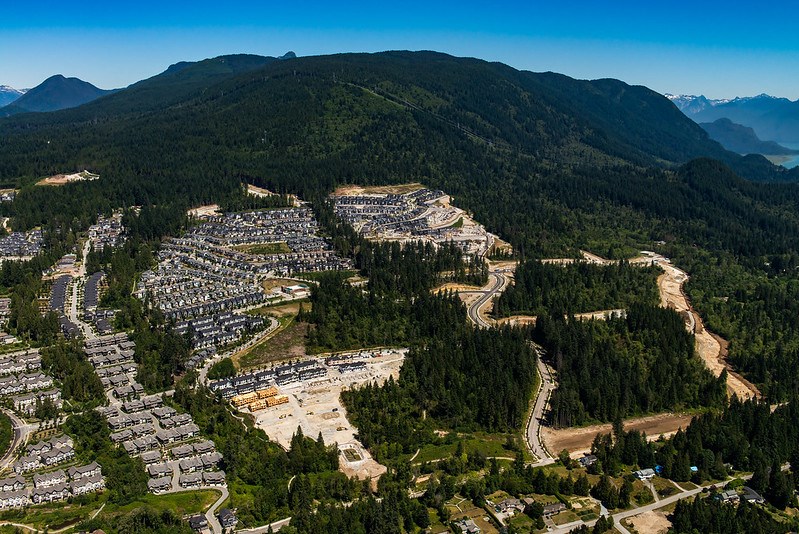CORRECTION: An earlier version of this story stated Burke Mountain was chosen because it was one of 15 communities across Canada that reported high levels of radon. In fact, it was chosen because the community requested to be included in the testing campaign and, though there are few data points to draw any conclusions, it has the potential to have high levels of radon.
An organization that educates and distributes test kits to measure deadly radon concentrations in homes is offering up 100 test kits to residents of Burke Mountain in Coquitlam.
Take Action Against Radon — a coalition of national health organizations backed by Health Canada — will distribute the kits in November as part of a national campaign to counteract death and illness related to the radioactive gas.
Burke Mountain was chosen as one of 15 communities across the country that has recieved a request from the community and where there's a potential for high levels of radon. In a 2010 Health Canada study which took in 14,000 data points from across Canada, Burke Mountain and the surrounding area did not report particularly high levels. The problem, said campaign project manager Pam Warkentin who also serves as executive director for the Canadian Association of Radon Scientists and Technologists, is that there's not enough data.
“We know that there are high radon areas,” said Warkentin, adding that even in communities where there’s a relatively small percentage of radon, finding the outliers can save lives. “Everyone needs to test. This is a really great opportunity.”
Radon, found naturally in the ground in clays, shales and soils, is the leading cause of lung cancer among non-smokers in Canada and is responsible for more than 3,200 cancer related deaths per year. Around the world, 189,000 people are killed annually due to radon-induced lung cancer, according to the World Health Organization.
Radon is formed when trace amounts of uranium found in the soil decay, a process that frees the radioactive gas to seep to the surface. Outside, radon dissipates and poses little threat to human health. But inside, the gas can penetrate gaps in a building’s foundation and walls.
From there, people’s health is threatened when they ingest the radioactive particles into their lungs, where they tend to break down DNA bonds. The more damage to your DNA, the higher the risk of cancer.
Health Canada estimates radon causes 16% of all lung cancers. Still, many people fail to understand the risks associated with the deadly gas. In one recent study commissioned by Health Canada, only about 8% of British Columbians have tested their homes for radon.
But if you do test your home and find it has high radon levels, guarding against the radioactive gas is relatively easy. Simple measures to seal your basement will prevent the gas from seeping into your home.
But the most effective method to lower radon levels, says Warkentin, involves installing a radon-reduction system — basically a pipe running under a house to vent radon out of the soil and into the open air, where it will harmlessly dissipate.
In B.C., radon-reduction systems range in cost from $1,300 to $4,000 for a regular detached home, according to Warkentin.
“We can fix it. We do have proven methods to reduce radon in homes,” she said.
• Radon test kits will be distributed at Victoria community hall, 3435 Victoria Dr., Coquitlam on Thursday, Nov. 14 from 7 to 8:30 p.m. To be eligible for a test kit, residents must live in a home on Burke Mountain that has ground contact or a basement living area.



